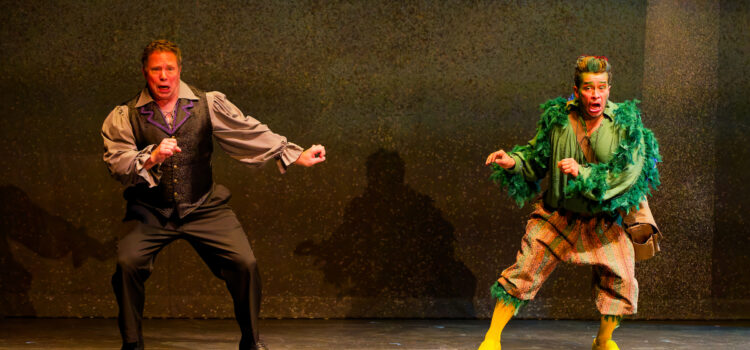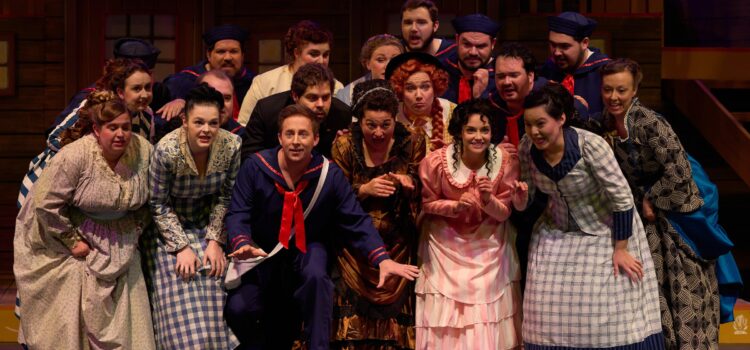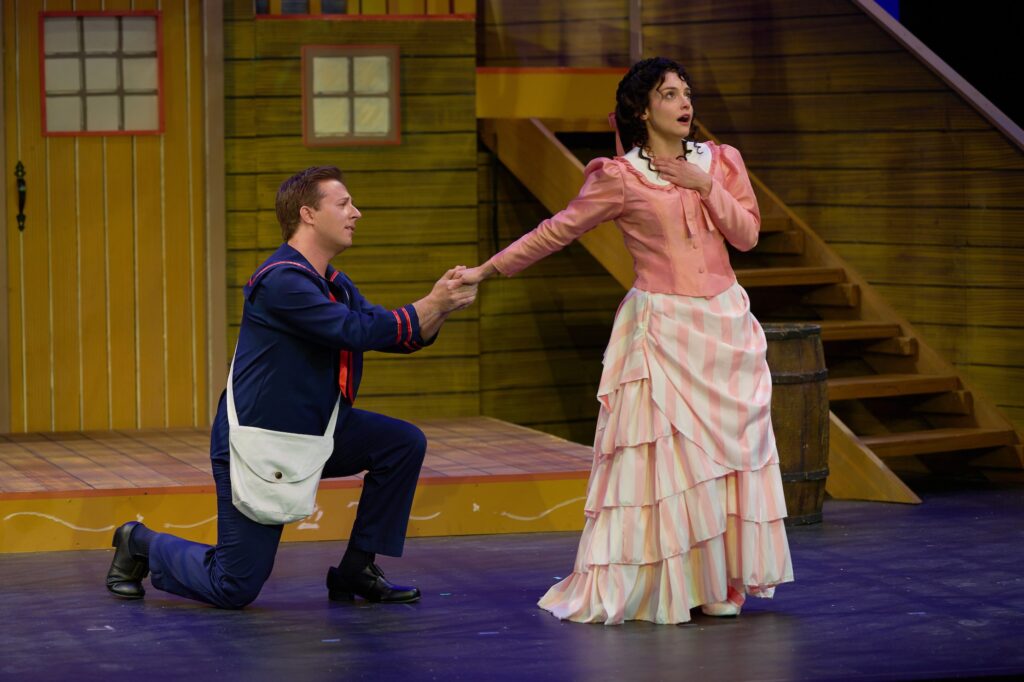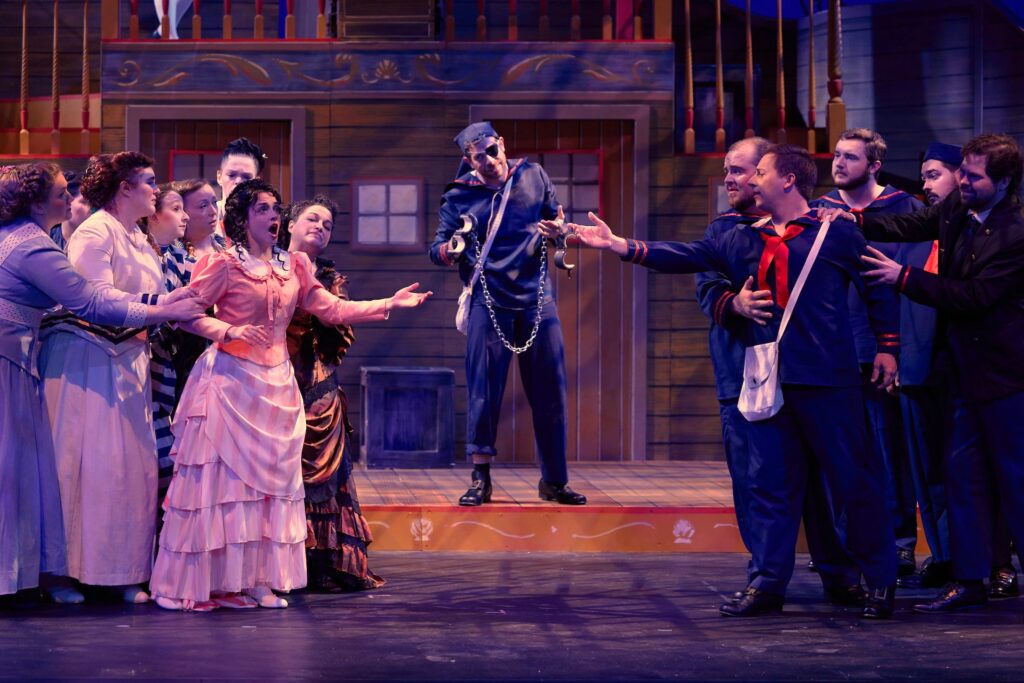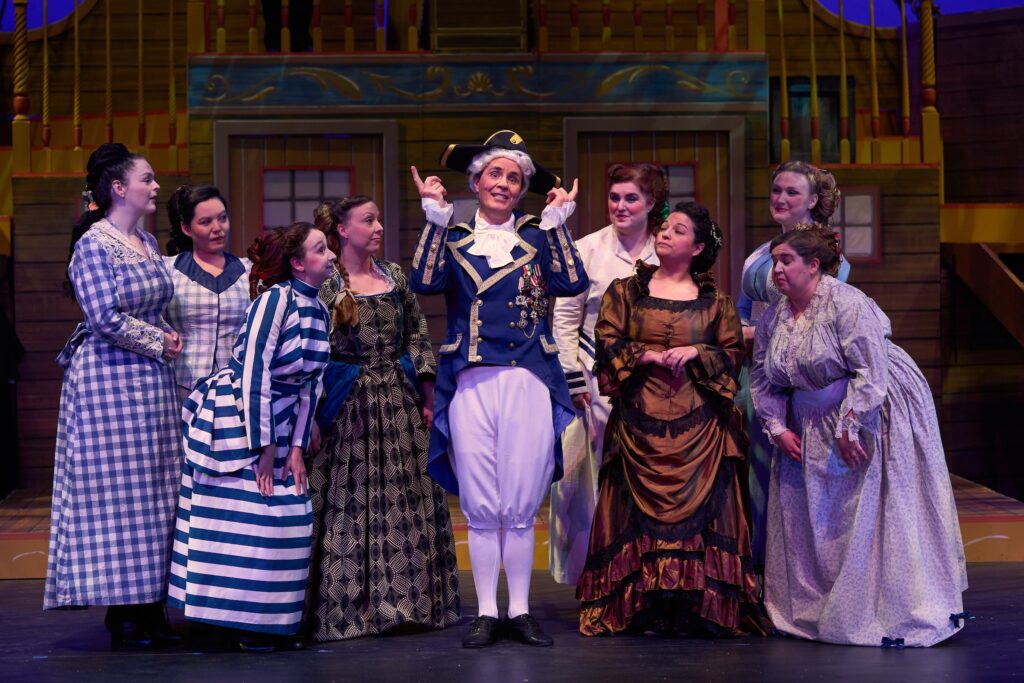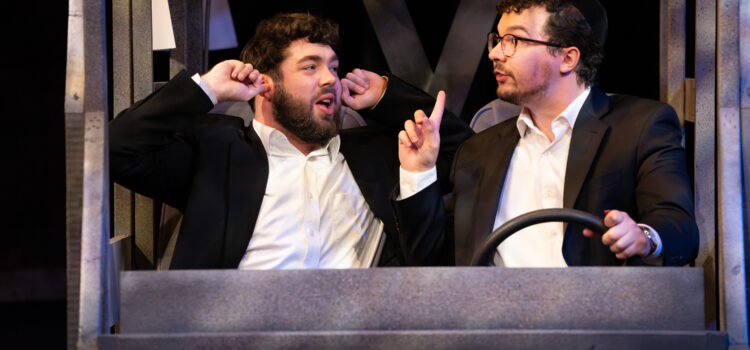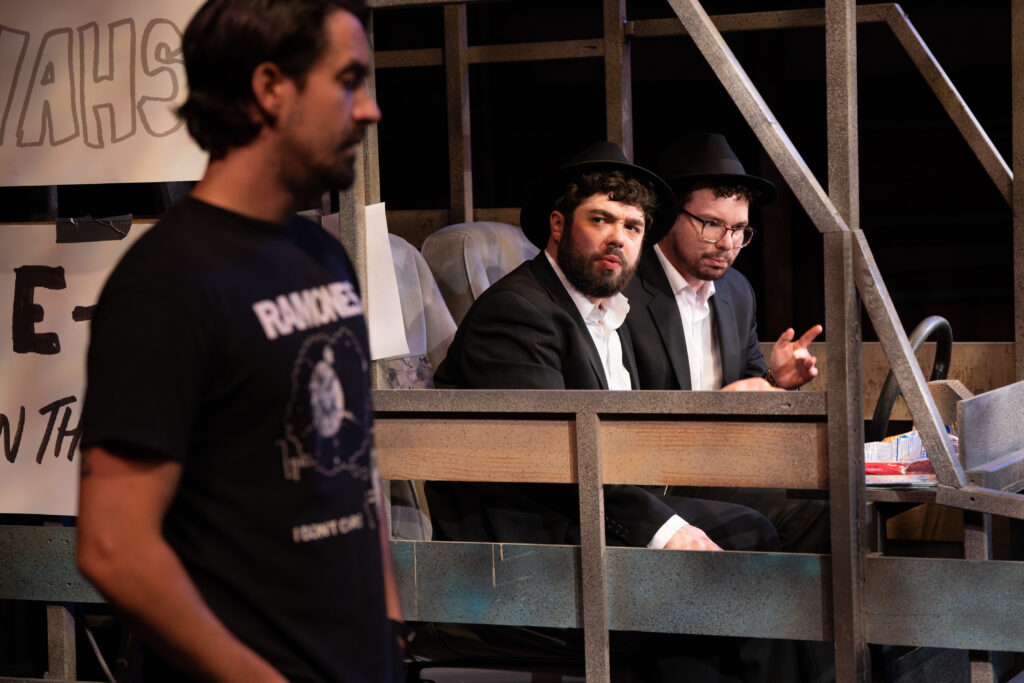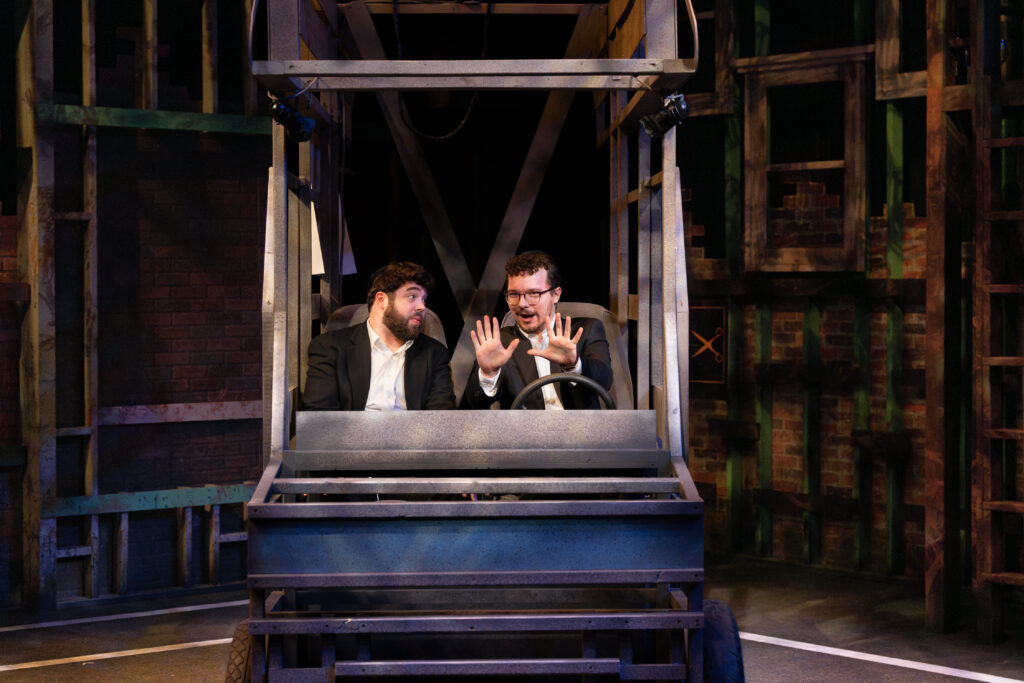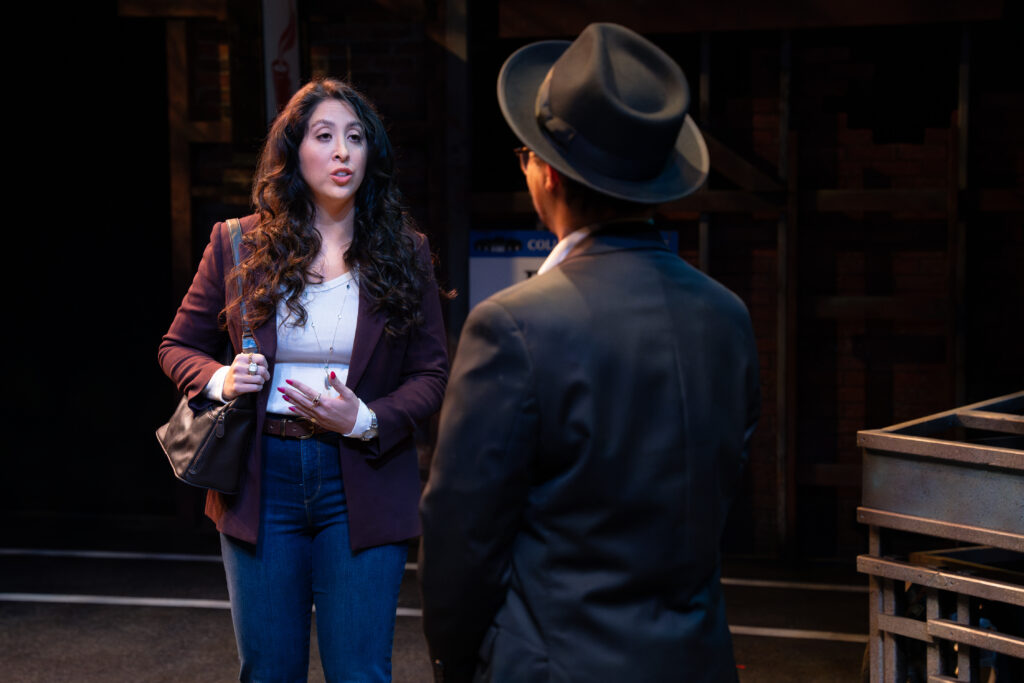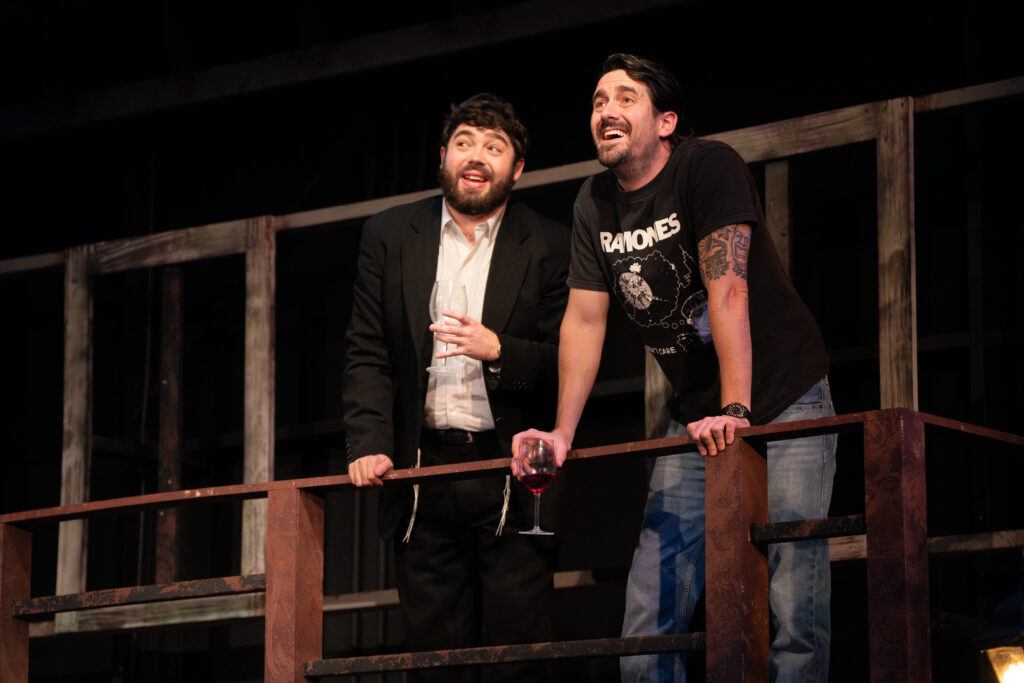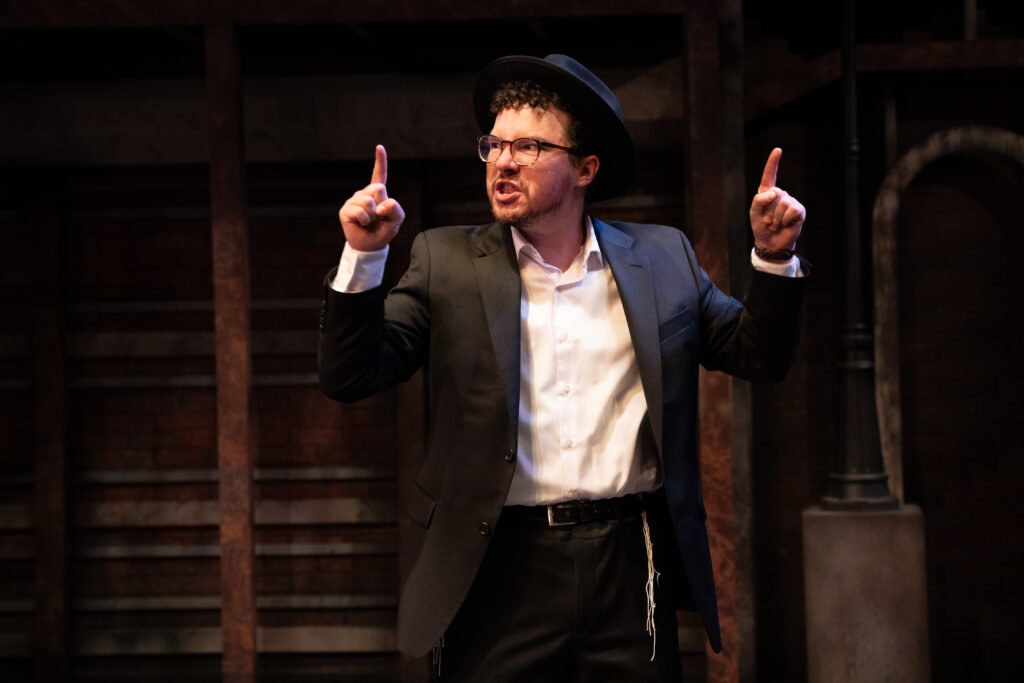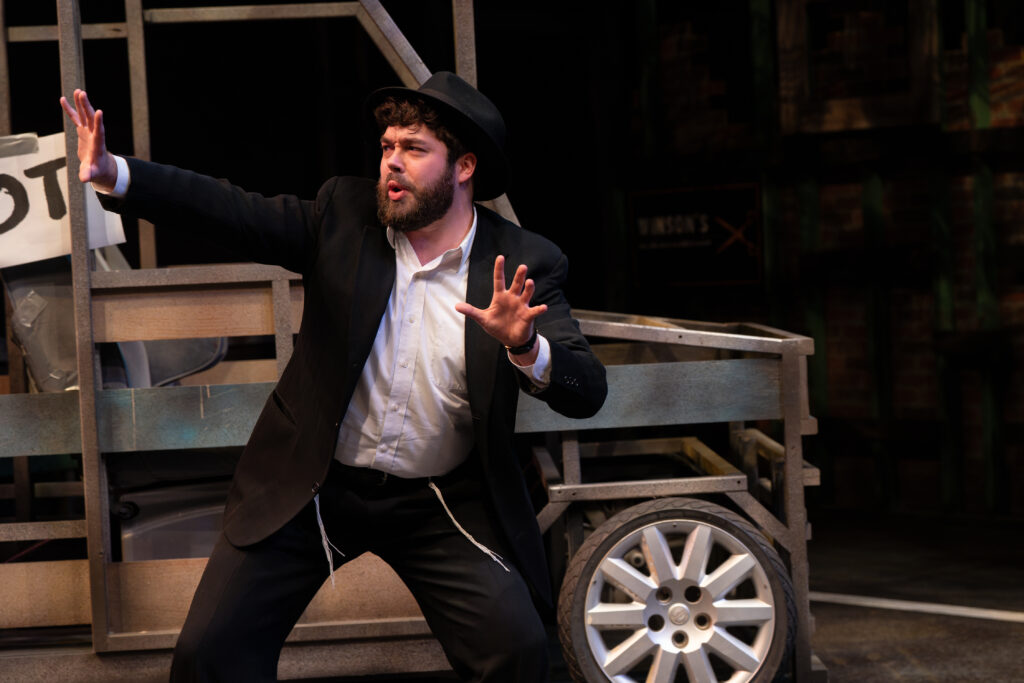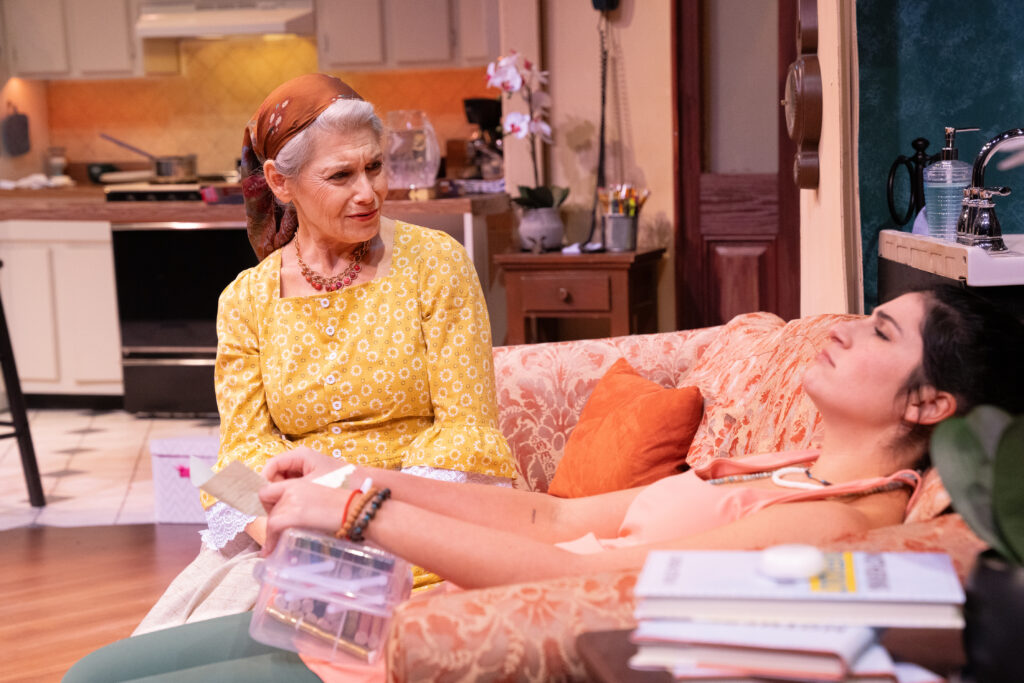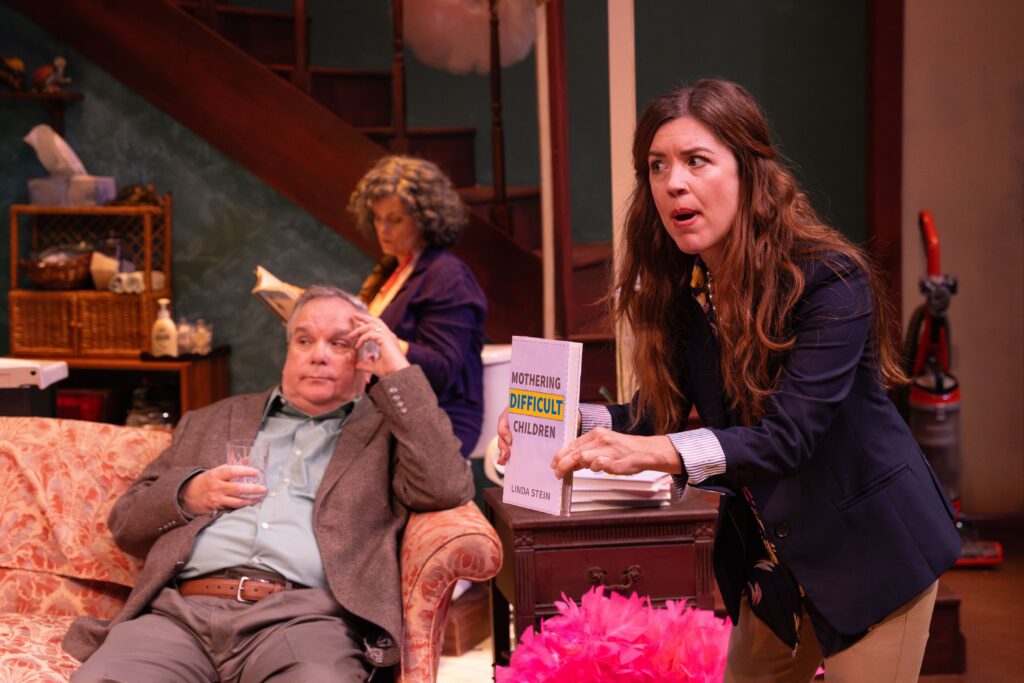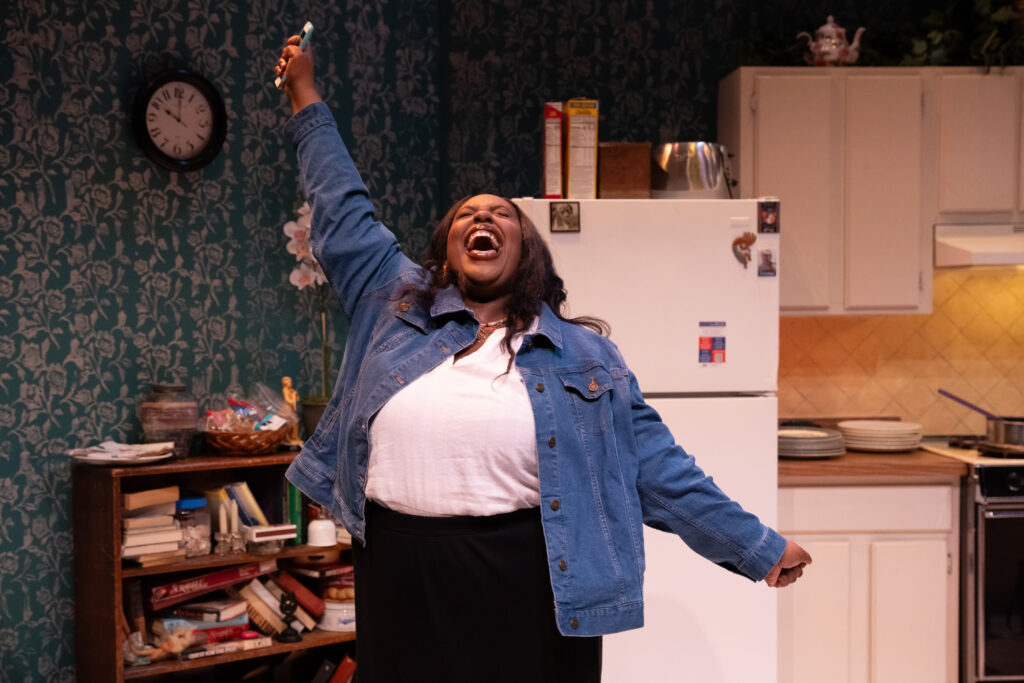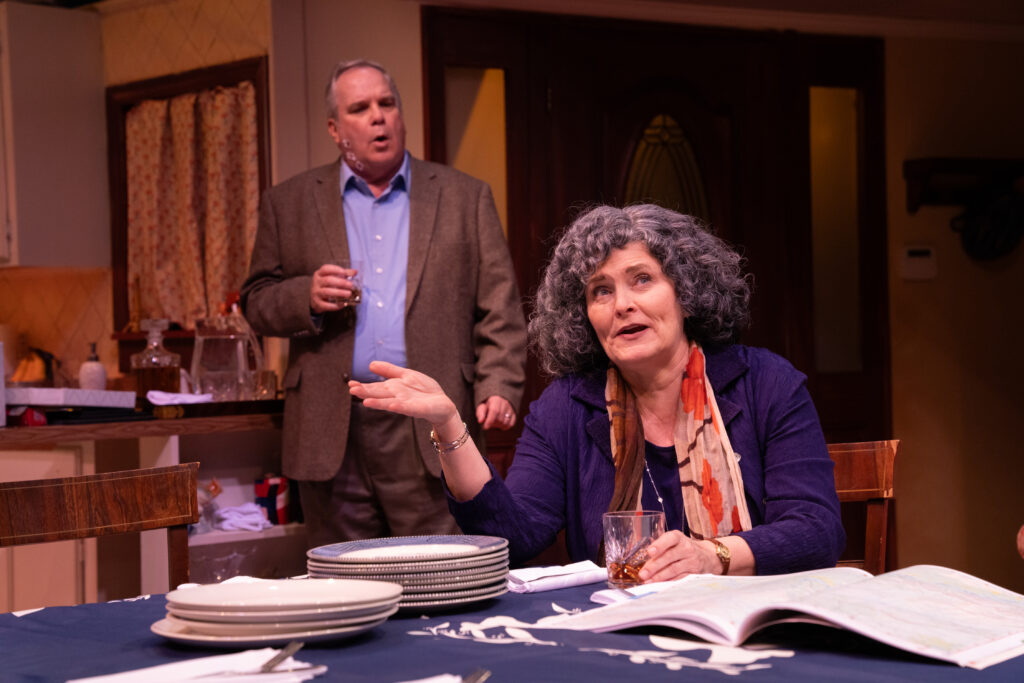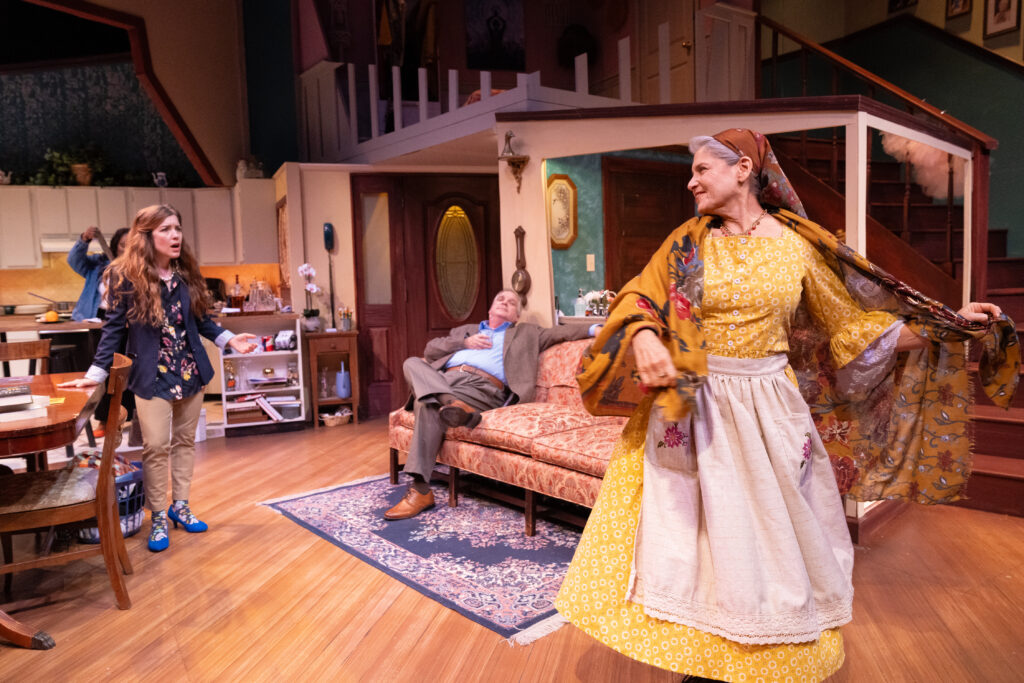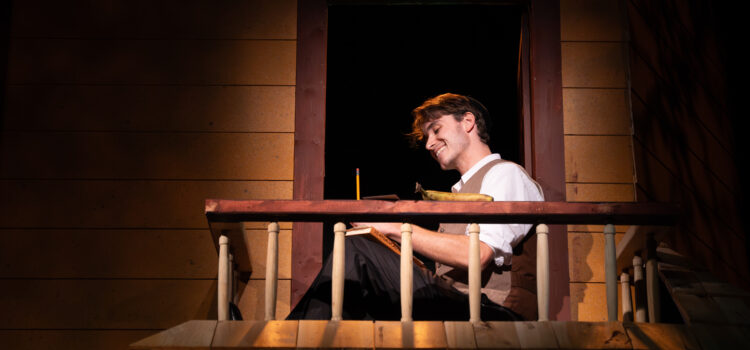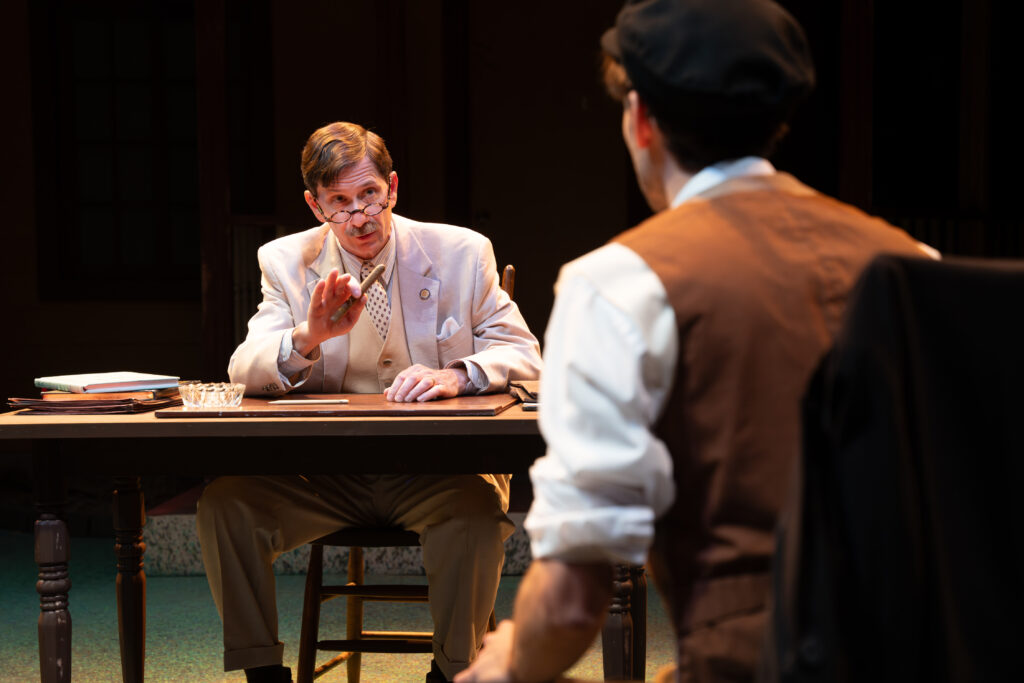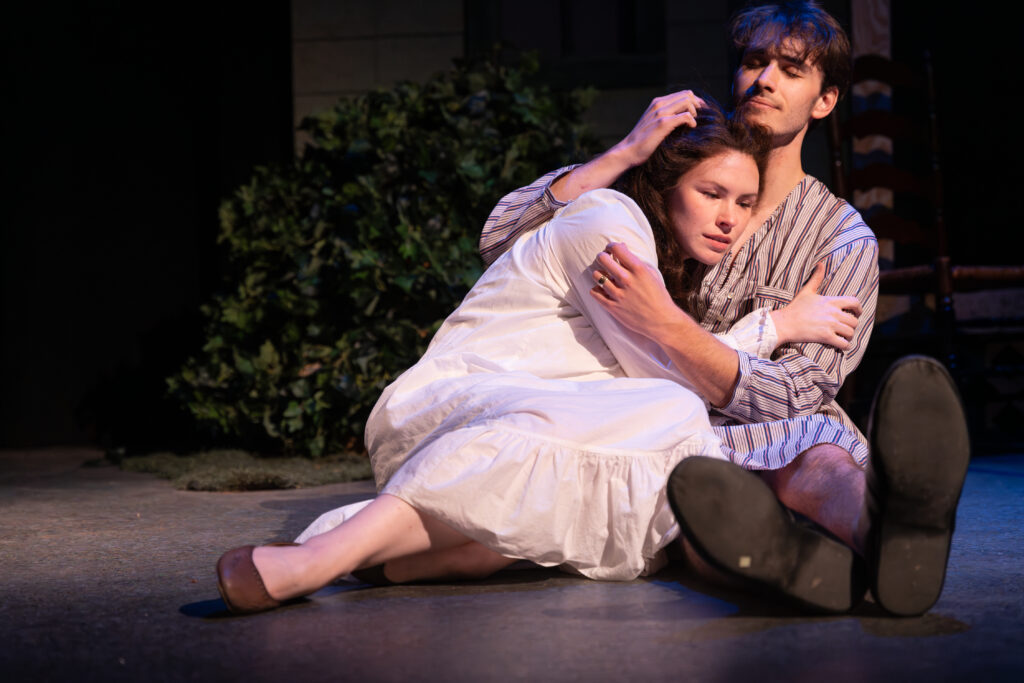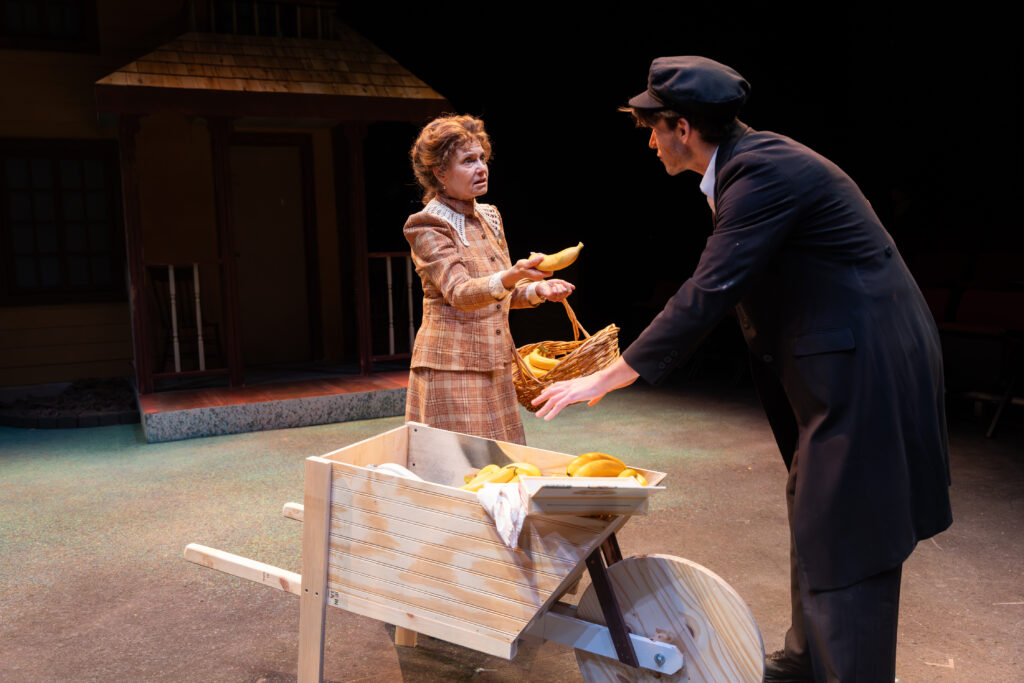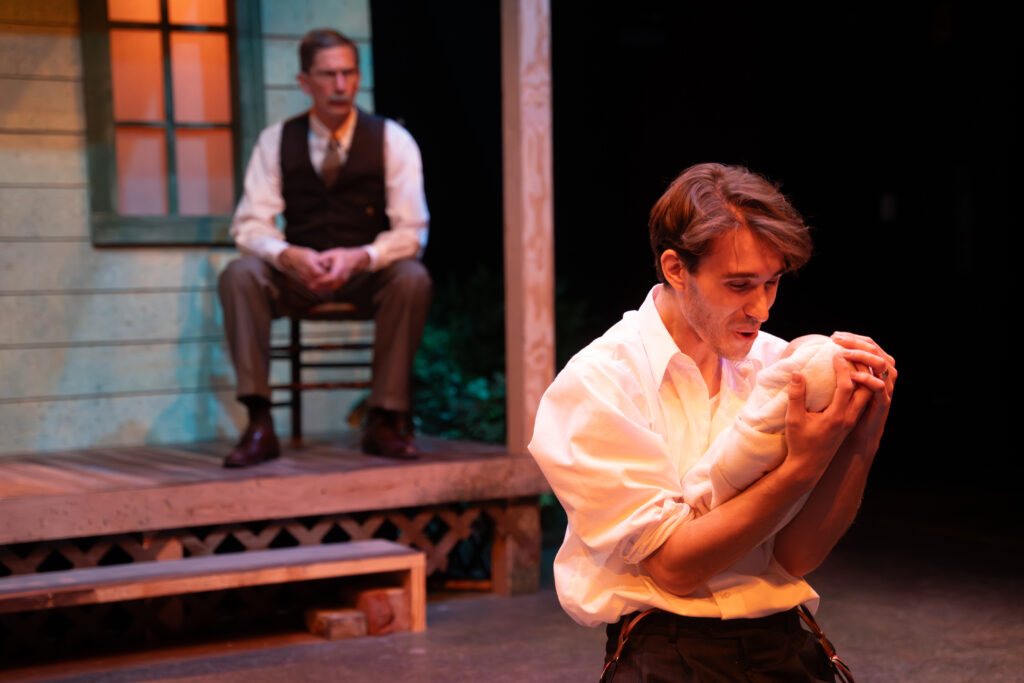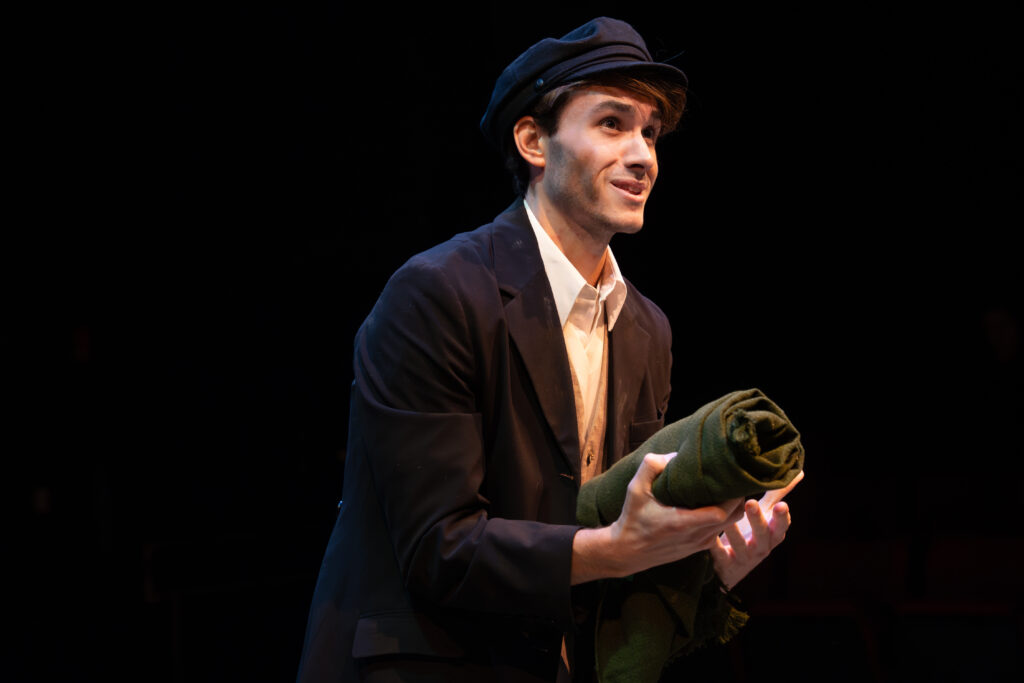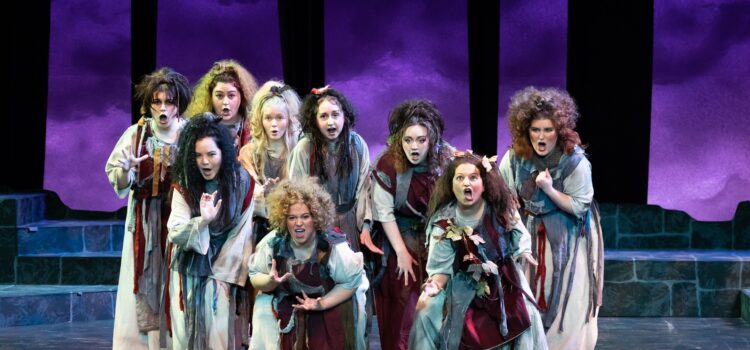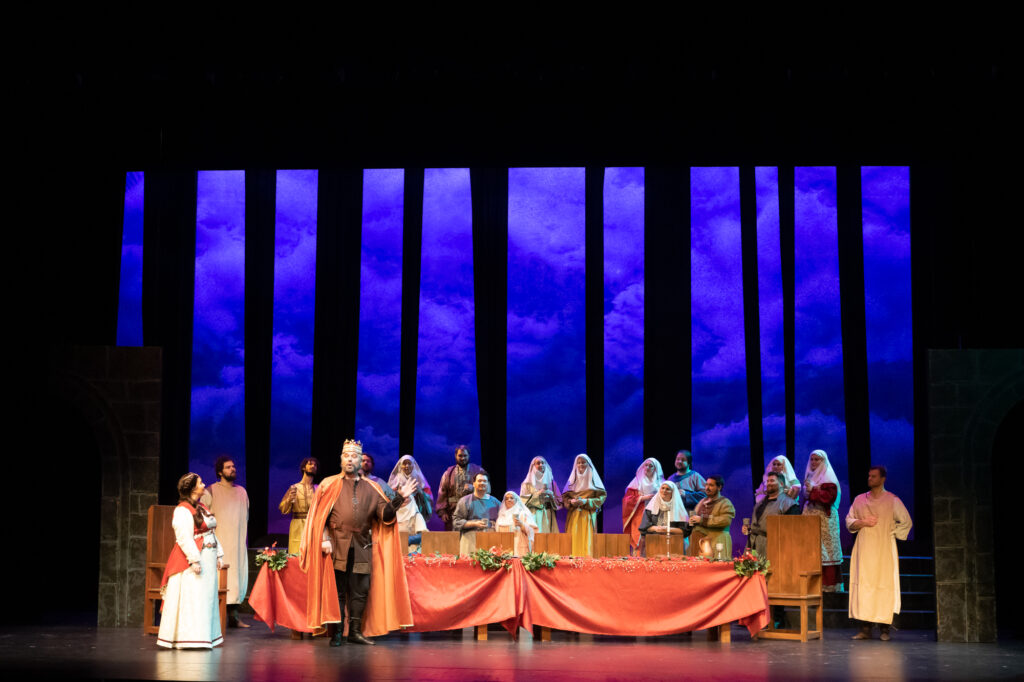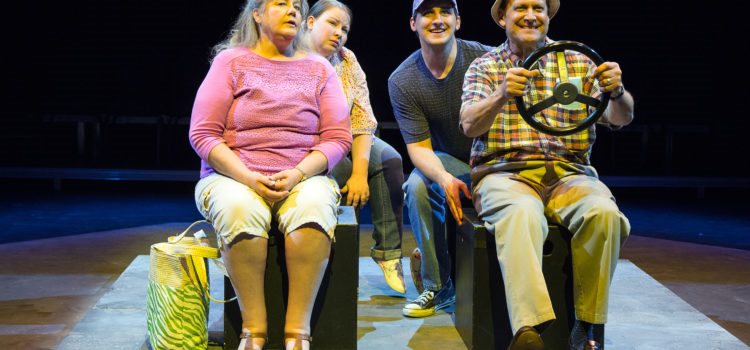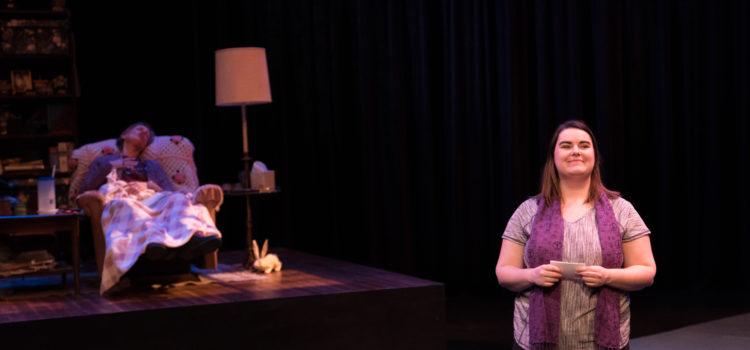By Lynn Venhaus
Live, laugh, learn – and love. All of it is there in “Two Jews Walk into a War,” in which two last-standing men navigate a tightrope between saving their world and giving up in a most despairing location – the last remaining synagogue in war-torn Kabul, Afghanistan.
You may not think that sounds remotely humorous, but this disarming comedy is warm, illuminating, touching and very funny.
The New Jewish Theatre’s polished production benefits from veteran actors Gary Glasgow as Ishaq and Chuck Winning as Zeblyan, showcasing their sharp comedic timing, enhanced by the company’s impeccable technical work.
Like the title implies, the play harkens back to a vintage entertainment era, like the Borsch Belt and Catskills comedic circuit, not to mention Neil Simon. Jewish comedians flourished in nightclubs during those times. But it’s not jokey in a stand-up way, it just reminds us how humor is often used in times of great distress.
The humor here, however, is laced with hope and faith, too, and touches on our desire to contribute to society during our lifetime, and the importance of heritage and religious freedom.
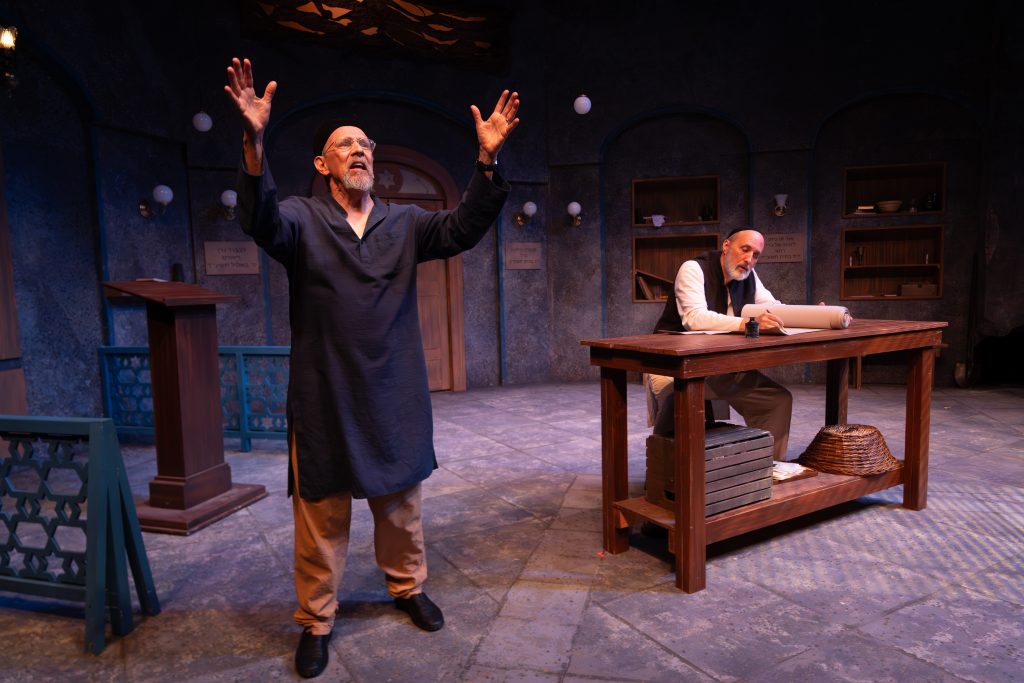
The thoughtful production is based on a remarkable true story. Playwright Seth Rozin discovered that there were in fact just two Jewish people left in Afghanistan where there once had been a population of 30,000+.
Reading about them in the New York Times, that dynamic between these two last-standing Jews intrigued Rozin, for they hated each other, and convinced him that there was comic gold to be mined from this relationship—and he was right.
He gave the characters different names, but their true natures shine through in the two actors’ lived-in portrayals. The angle here is that their intense dislike of the other is because of very different personalities and temperaments, not to mention a wide age gap. They kept their distance until circumstances forced them to work together for survival.
That’s where they come to a détente – sort of. Oh, they still bicker, tempers flare, and their one-upmanship about who has suffered more is funny. Ah, gallows humor – a handy tool for getting by.
The men are an amusing odd couple, but eventually, they bond, and it’s realistic. Their Judaism binds them, and uniting in their beliefs is more important than their petty squabbles.
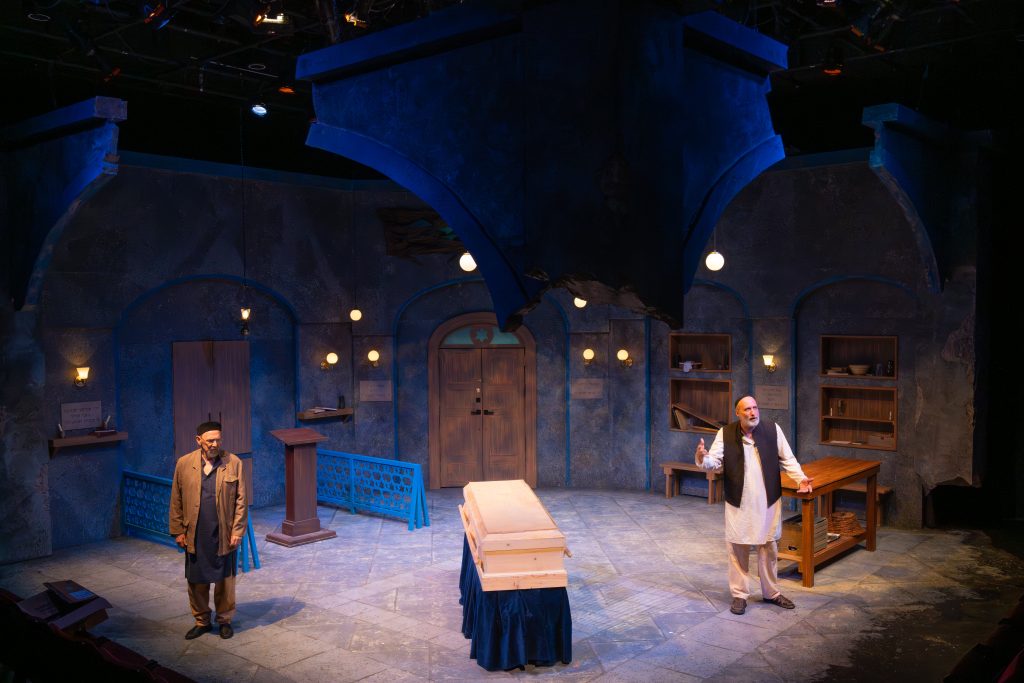
While the meticulously detailed abandoned synagogue by scenic designer Lily Tomasic is a tribute to religious traditions, and now a haven despite taking hits, the flawless sound design by Kareem Deanes and Michael Sullivan’s lighting design captures the dangers outside of living in the Taliban-controlled city.
Bullets spray, bombs explode, a mosque’s call to prayer can be heard, and chaos reigns. As a contrast, scene changes feature upbeat Klezmer and Middle Eastern music interludes. The transitions are also smooth, so shout-out to stage manager Patrick Siler.
The devout Ishaq, self-appointed caretaker of the crumbling synagogue, observes every Jewish ritual and law and is perturbed by what he views as Zeblyan’s casual regard for his faith, among other traits.
Glasgow projects piety and a need to always be ‘right’, while Winning needles him, like a kid asking “Why?” all the time. Ever a skeptic, he’s fine with disagreeing with Ishaq at every opportunity. Plus, his swagger rubs the elder the wrong way.
The difference in their sizes also lends itself to a chuckle, in a Laurel and Hardy, Abbott and Costello way. Zeblyan, a carpet merchant, is more cosmopolitan, and is still working in the city. He orders lattes at Starbucks and visits an internet café. He’s given an iPod by a customer, and convinces Ishaq to listen, although the elder does not take to modern tunes.

Their interactions are lively and engaging, so when they tackle more serious issues — mourning the loss of their community, and their fears and anger about what has transpired, you share their heartfelt concerns.
Their parents were friends and in search of a better life, moved their families to Afghanistan when the two men were young. They are used to hardships, for their families were Holocaust refugees. Zeblyan’s wife and children have since moved to New Jersey, leaving him alone in Kabul; Ishaq was never married.
Their common ground occurs when they agree they must have a Torah, the sacred scroll that contains the first five books of the Bible. They no longer have one. Ishaq will recite, for he knows it by heart, while Zeblyan will transcribe. Hand-written on parchment, it must be perfect, which triggers funny sight gags and more verbal sparring.
The purpose? Ishaq hopes to recruit a rabbi so they can convert an Afghani woman to Judaism and then marry one of them and begin repopulating Jews in Afghanistan. That is a tall order, but this drives them to work daily on this project.
That leads to pondering about why certain things were excluded from this ancient holy text. Ishaq, the expert, has a different interpretation than Zeblyan, who is questioning the loopholes, especially about sex. These are learned men having frank discussions, with the younger getting a little risque.
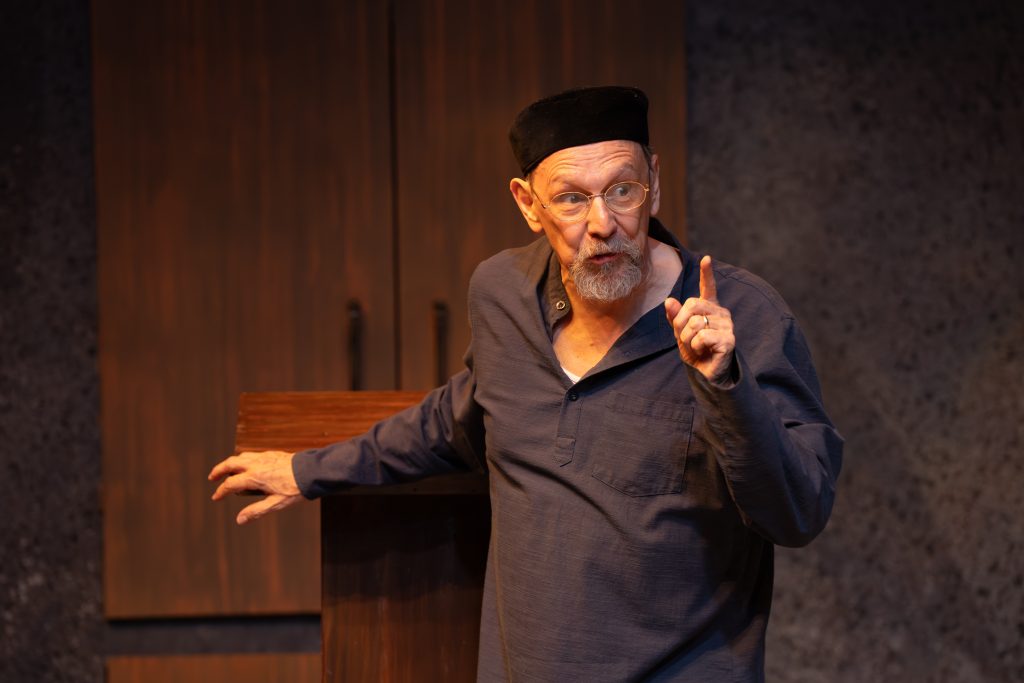
Understanding the tenets of our individual faiths are never easy, and those debates here are as interesting as they are humorous, for both men realize they must carry their heritage forward – it is a necessary duty.
Under the assured direction of Aaron Sparks, who had a medical situation that led to artistic director Rebekah Scallet stepping in to help, the production’s precision is notable. The two actors, always at the top of their game, are well-suited to work in tandem, and their scenes together are sharp, with smooth coordination.
Sparks and Scallet’s top-notch team, which also included Michele Friedman Siler’s costumes, strengthened the engrossing storytelling.
Both performers, experienced actors in Shakespeare plays, are adept at wordplay, and keep us riveted as this inspiring story unfolds. This two-hander is quite challenging, and their strength was significant. It’s more physical than one would suspect, too.
Resilience in the face of overwhelming odds is admirable, and in today’s world, the story takes on more urgency and heroism. As Winston Churchill famously said: “When you’re going through hell, keep on going.” The ‘Never Give Up’ message is always important.
That spirit is at the heart of New Jewish’s revealing production, where I learned and laughed – a lot.
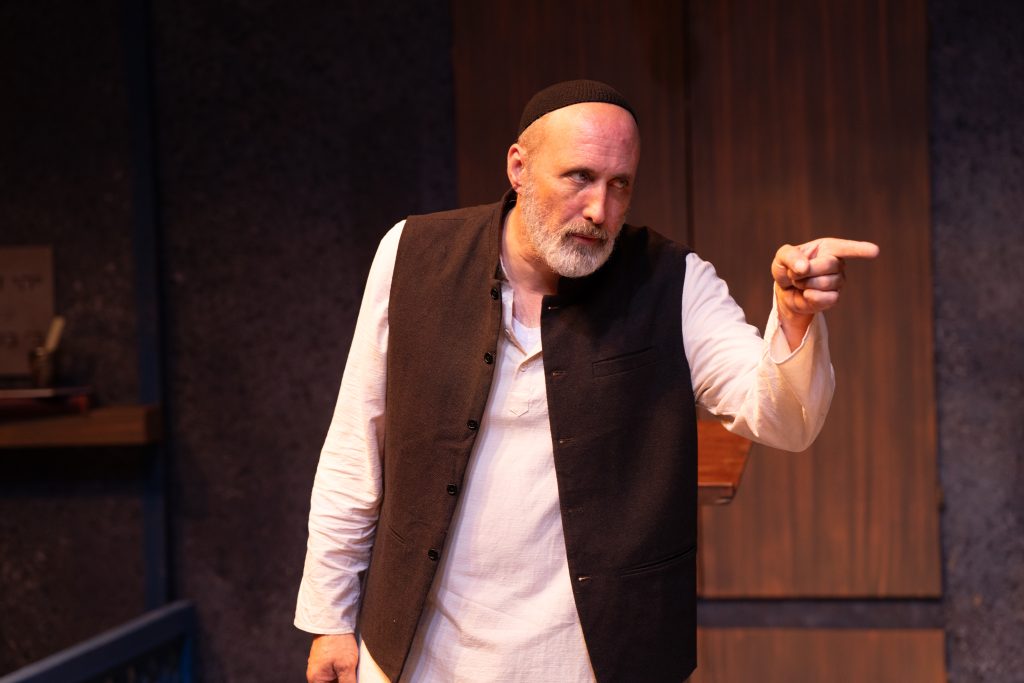
New Jewish Theatre presents “Two Jews Walk into a War” from July 24 to Aug. 10, with performances Thursdays at 7:30 p.m., Saturdays at 4 p.m. and 8 p.m., and Sundays at 2 p.m. in the SFC Performing Arts Center, 2 Millstone Campus Drive. The runtime is 1 hour, 30 minutes without intermission. For more information: jccstl.com/arts-ideas/new-jewish-theatre/current-productions.

Lynn (Zipfel) Venhaus has had a continuous byline in St. Louis metro region publications since 1978. She writes features and news for Belleville News-Democrat and contributes to St. Louis magazine and other publications.
She is a Rotten Tomatoes-approved film critic, currently reviews films for Webster-Kirkwood Times and KTRS Radio, covers entertainment for PopLifeSTL.com and co-hosts podcast PopLifeSTL.com…Presents.
She is a member of Critics Choice Association, where she serves on the women’s and marketing committees; Alliance of Women Film Journalists; and on the board of the St. Louis Film Critics Association. She is a founding and board member of the St. Louis Theater Circle.
She is retired from teaching journalism/media as an adjunct college instructor.


